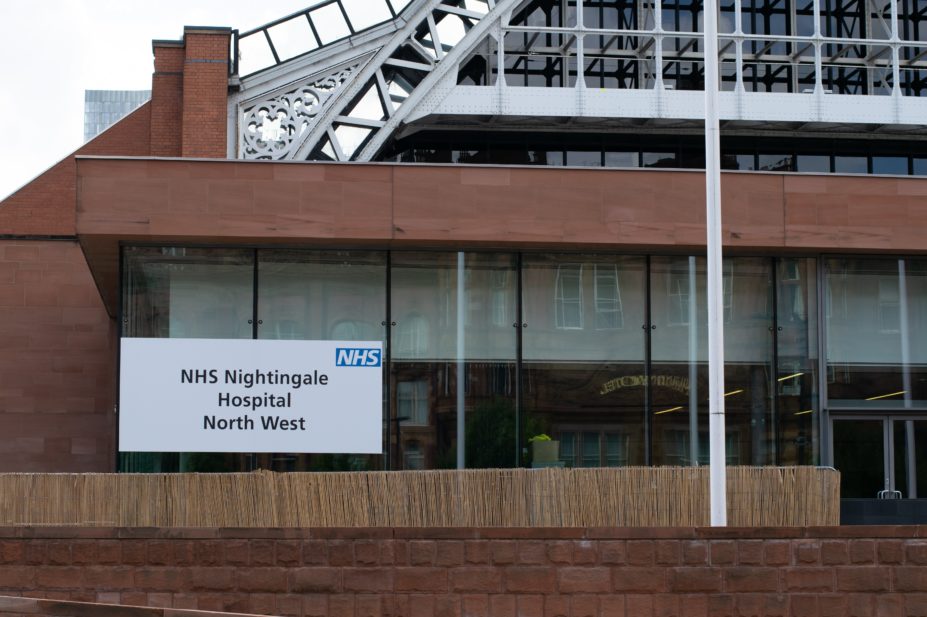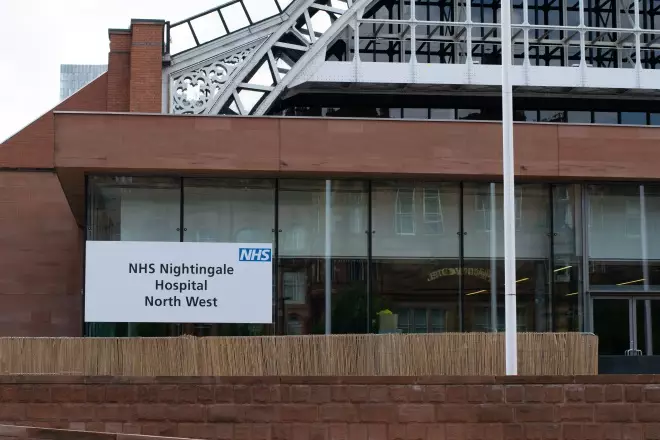
Shutterstock.com
Open access article
The Royal Pharmaceutical Society has made this article free to access in order to help healthcare professionals stay informed about an issue of national importance.
To learn more about coronavirus, please visit: https://www.rpharms.com/resources/pharmacy-guides/wuhan-novel-coronavirus

Source: Shutterstock.com
On 22 October 2020 it was announced that NHS Nightingale North West would be opening by “the end of the next week”
Reopening the Nightingale hospitals will put “incredible strain” on hospital pharmacy teams, the Guild of Healthcare Pharmacists (GHP) has warned.
Speaking to The Pharmaceutical Journal, Ewan Maule, vice president of the GHP, said that the pressure of additional beds and patients combined with increased levels of staff self-isolating meant that the impact on pharmacy would be “more severe” than it was during the first spike in COVID-19 cases.
“As well as the strain on the pharmacy services — and it shouldn’t be forgotten that this is not just clinical pharmacy, but also technical services as well — the strain on individual staff and their physical and mental health is going to be significant,” he said, adding that it was “vital” that employers recognised this and support staff in “every manner possible”.
“Caring for patients in Nightingale hospitals is not like working in a normal hospital and so the impact on staff will be more significant. The long-term effects of this should not be underestimated,” Maule added.
In mid-October 2020, several NHS Nightingale hospitals in northern England were asked to prepare to take patients, after experts revealed that more people were in hospital with COVID-19 than before lockdown began in March 2020.
Liz Kay, chief pharmacist at NHS Nightingale Yorkshire and the Humber, said that her team was ensuring it was at “the optimum state of readiness” in order to be able to “stand up” within the five-day notice period that would be given by NHS England in the event that the hospital needed to open.
“We will only open when the capacity from the acute sector has been exhausted — we would then take level 3 and level 2 ICU patients — but we’re not at that point yet … during the past week we’ve been ensuring that we are at the optimum position to open in the event that we have to.”
“Our pharmacy team has been [going] through all the elements of what we would need in the pharmacy service; since the first wave we’ve substantially reviewed our workforce and planned a tighter, less workforce-intensive structure than we had before,” Kay explained.
“We’re very conscious of the pressures in the acute trust and the need for the staff to be working in the acute trusts, so we’ve minimised what we believe we need from the acute trusts and maximised what the team at the Nightingale will do — so we’ve reduced our resource needs.”
Kay said that, so far, her team had planned resourcing for the first 30 beds, including reviewing the logistics for the delivery of products to the site, and ensuring the storage of some medicines on-site.
However, despite the preparation, Kay agreed that with more staff self-isolating and more staff sickness, the need to look after the pharmacy workforce was “really important”.
“Working in the patient care zone, wearing PPE [personal protective equipment] and understanding the critical nature of patients – [it’s] difficult for staff.
“[Therefore, the] secondment to come and work in the Nightingale would be for a fixed and limited period — probably about six weeks — which is long enough to be trained and to be part of a team but not so long for there to be an impact in terms of where they live, their families etc.”
On 22 October 2020, it was announced that the NHS Nightingale North West would be opening by “the end of the next week”.
At a Manchester City Council press conference, Jane Eddleston, critical care network lead for Greater Manchester, said that the Nightingale would “not be used” as a critical care facility but as a facility for patients to have additional rehabilitation.
“[It will be for] patients who would be ready for home discharge were their functional state a bit better, so it will be an opportunity for us to pursue … [a] discharge to assess model.”
